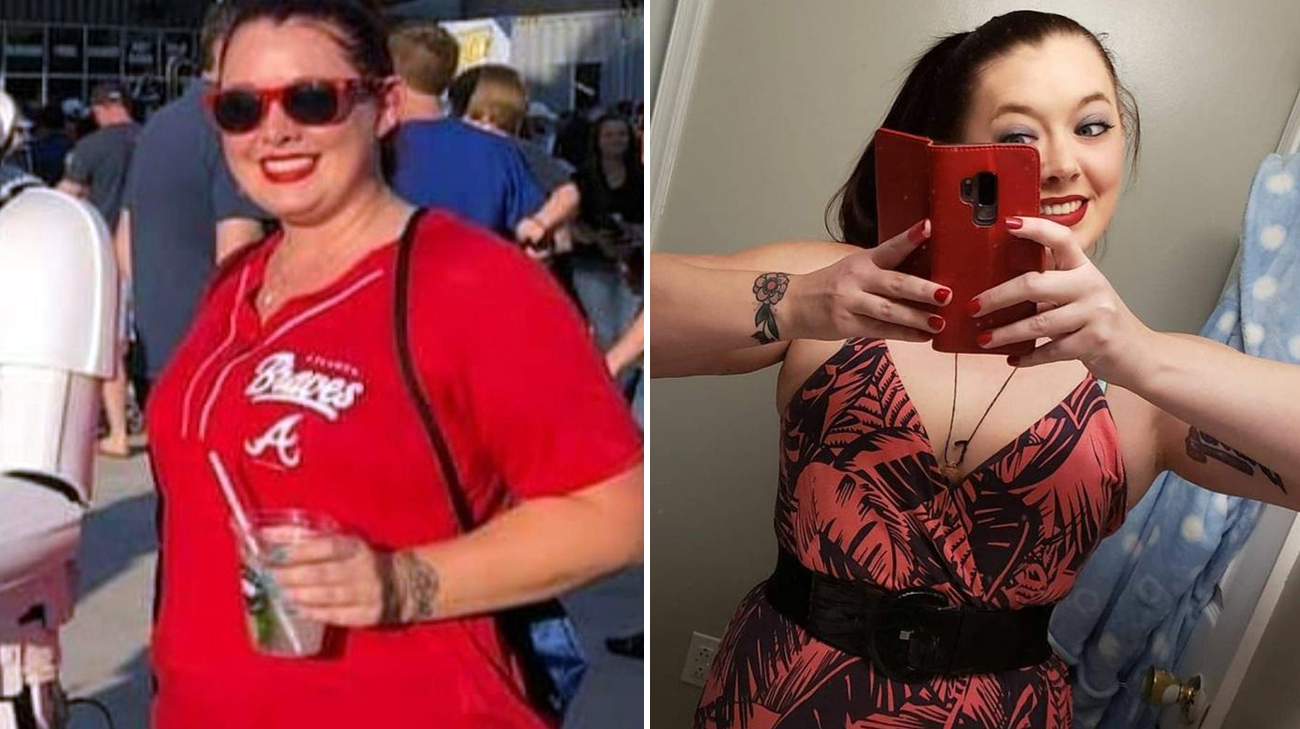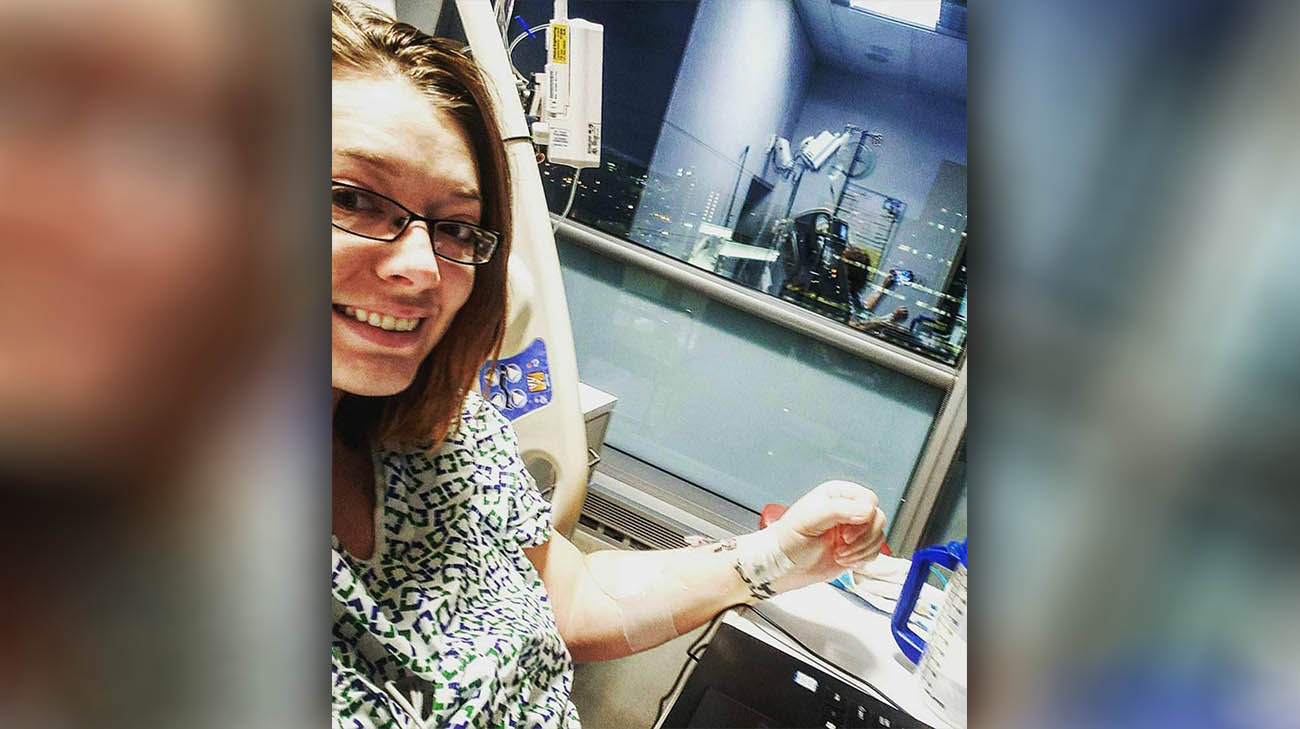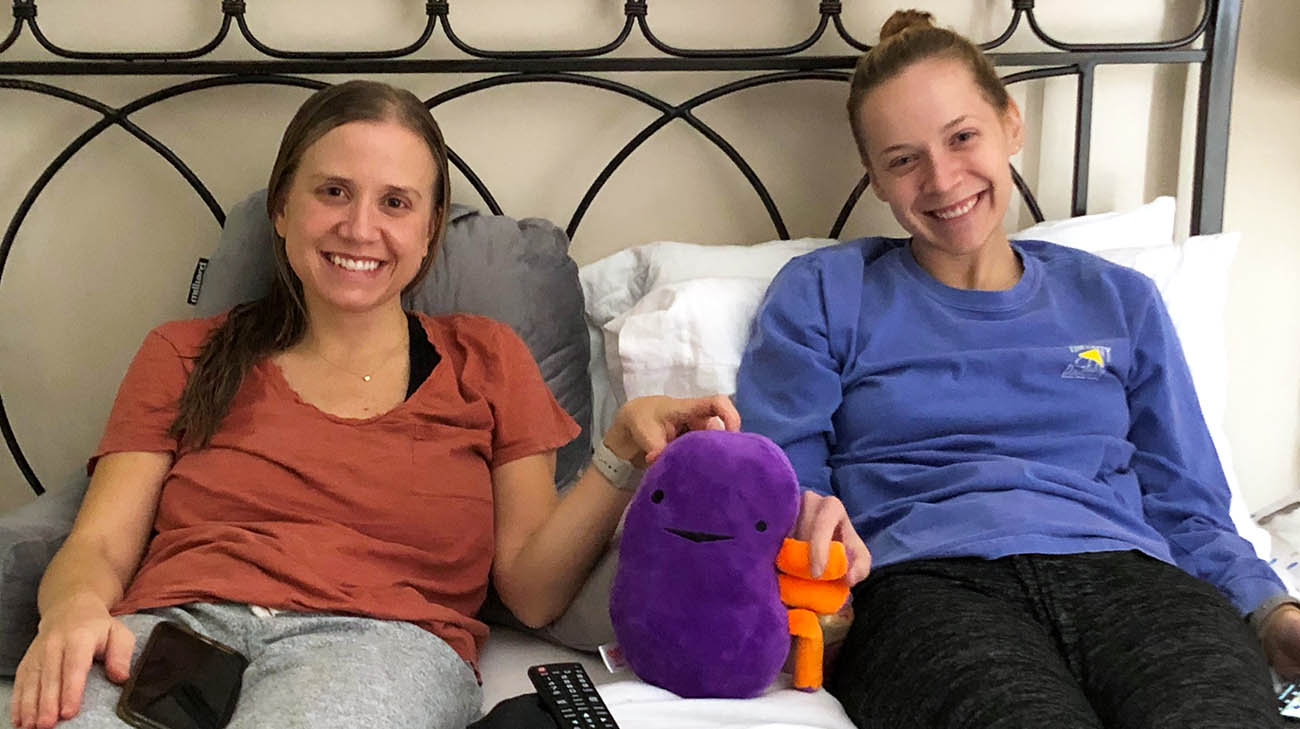
“It was a good way to spend a Wednesday,” says Holly Best, who prefers to downplay her donation of a kidney so a person she’s never met could live. However, Holly was the essential link to an intricate chain of kidney donors and recipients. Her organ donation ensured six people received life-transforming transplants at Cleveland Clinic.
Holly, a career counselor who lives in Fredericksburg, Virginia, has Type O blood. In general, individuals with Type O blood are a match for any recipient. That meant Holly could start a chain and fill the missing gap in paired exchanges. A paired exchange involves people willing to donate a kidney on behalf of a friend or family member but who aren’t compatible with their intended recipient. As a result, their kidney is offered to another person awaiting a transplant, in exchange for a kidney that matches.
“The logistics can be quite a challenge sometimes. You’re always worried something could go wrong, and somebody has to drop out, resulting in the chain breaking,” says surgeon Alvin Wee, MD, Program Director for Kidney Transplant at Cleveland Clinic. “Because of Holly, six patients who needed a kidney got a new lease on life.”
Holly’s participation is all the more remarkable because she was an altruistic donor who wasn’t participating on behalf of any particular recipient. She simply wanted to give.
“I’m super grateful I got to do it,” says Holly, who actually began the process of becoming a donor in early 2019, more than a year before her kidney was removed by Dr. Wee during a minimally invasive laparoscopic surgical procedure. “I got to help somebody, and at the same time, it forced me to help myself. So it was a win-win for me.”

Holly worked towards a healthier lifestyle so she could donate her kidney. (Courtesy: Holly Best)
After seeing a post on Facebook about a friend of a friend needing a kidney, Holly decided to help. While her Type O blood type meant she was a match for the intended recipient, doctors at a Michigan hospital informed her she needed to lose weight and cut back on alcohol consumption in order to be approved for the procedure.
For the next several months, Holly improved her diet, but nevertheless failed to meet the hospital’s requirements. So, she tried again, quitting drinking altogether and undertaking an exercise regimen. By November 2020, she lost nearly 100 pounds and passed all other health-related requirements. However, by then, her intended recipient, who would soon have required kidney dialysis, received a kidney from another donor.
While thrilled for the recipient, Holly was disappointed in herself for not getting healthy enough in time to help. “I had put way too much work into this for somebody not to get a kidney,” Holly states. “I said, ‘Find me someone else!’”
So, Dr. Wee and the kidney transplant team did just that. Holly's kidney ended up being the missing piece in a kidney swap, where six people had someone willing to donate but weren’t matches. Holly’s altruistic kidney donation started the chain and allowed each person to receive the kidney they desperately needed.
One of the recipients who benefited from Holly’s selflessness is Anne Lebold, an attorney in New York City who temporarily moved back to her hometown of Cleveland, Ohio, when her kidneys suddenly and inexplicably failed in July 2020.

Anne (right) with her sister, Erin (left), after undergoing a kidney transplant. (Courtesy: Anne Lebold)
Anne’s three sisters offered to be tested but none were a match. Her youngest sister, Erin, a physician in residency in Michigan, nonetheless agreed to be part of the swap. As a result, Anne received a kidney from a donor in a paired exchange.
“It’s just amazing to think somebody would be willing to do that,” says Anne. “It is an amazing gift that I’ll never be able to repay to Erin or the others (in the chain).”
All of the surgeries took place over a two-week period at Cleveland Clinic. Following her Wednesday surgery, Holly was back at work remotely, from her hospital bed the next day. By Friday of that week, she was taking a walking tour of Cleveland and felt as good as new in just a few weeks.
“Based off of my experience alone, what’s three weeks of minor discomfort for a lifetime knowing that you helped somebody else,” says Holly. “This process forced me to reevaluate the life choices I was making. I’m much healthier and a lot happier now, and I feel I’m living a better life.”
Related Institutes: Glickman Urological & Kidney Institute

